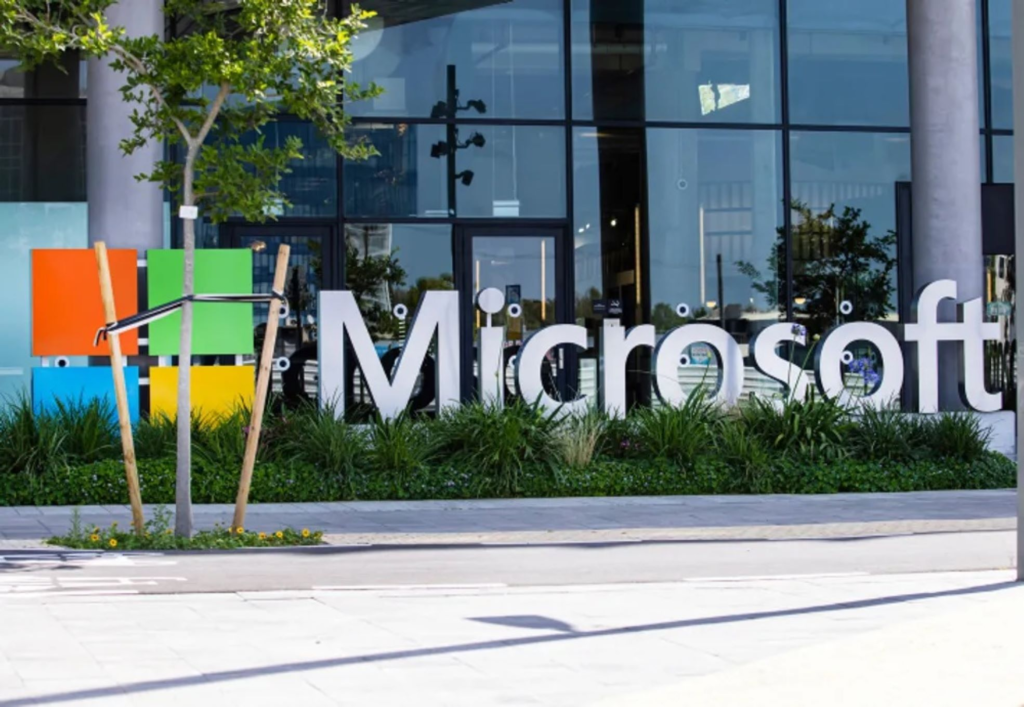In a move that has drawn international attention, Microsoft announced it is blocking Israel from accessing certain cloud and AI services, citing concerns that the technologies may have been used in surveillance activities targeting Palestinians. The decision represents a rare instance where a major technology company has taken an ethical stand that directly impacts the policies and actions of a sovereign nation.
For Microsoft, this decision was not purely technical—it was moral. The company framed the move as part of a commitment to human rights, ethical technology, and responsible AI use. It is a signal to the tech industry and the world that tools built for innovation should not be misused in ways that harm vulnerable populations.
Context: Technology and Surveillance
In recent years, the rapid development of cloud computing and artificial intelligence has transformed governments’ ability to collect, analyze, and act on vast amounts of data. While these technologies offer immense potential for positive impact—improving healthcare, transportation, and communication—they also carry risks. In some cases, AI-powered surveillance can be used to monitor and control populations, raising serious ethical and human rights concerns.
Microsoft’s announcement highlighted reports and allegations suggesting that AI services had been linked to the surveillance of Palestinians. The company did not accuse any government directly but emphasized its responsibility to ensure its technologies are not used to violate fundamental human rights.

Ethical Responsibility in the Tech Industry
Microsoft’s decision underscores a growing trend in the tech sector: companies acknowledging that they have a moral responsibility in how their products are used. For decades, technology was seen as neutral, a tool that could be applied for good or ill depending on the user. Today, tech leaders are increasingly recognizing that neutrality is no longer sufficient.
By restricting Israel’s access to certain services, Microsoft is drawing a line: products designed to enhance life should not become instruments of oppression. The decision is part of broader efforts across the industry to create ethical AI frameworks, establish human rights guidelines, and monitor the impact of emerging technologies on societies worldwide.
Reactions from Israel
The Israeli government expressed disappointment over Microsoft’s decision. Officials described the move as an interference in technological collaboration and argued that it could impact innovation, research, and national security projects. They emphasized Israel’s long-standing partnerships with global tech companies and highlighted the importance of AI and cloud services for economic growth.
At the same time, some voices within Israel acknowledged the need for ethical reflection. Civil society organizations and human rights activists pointed out that technology companies must take responsibility for how their tools are deployed. They praised Microsoft for recognizing the potential harm that unregulated AI applications can cause in contested areas.
The Human Impact
Beyond politics and technology, this decision affects people on a human level. For Palestinians, Microsoft’s move represents a rare instance of recognition that their privacy and safety are critical considerations in the deployment of AI technologies. Surveillance technologies have real consequences for individuals and families—tracking movements, monitoring communications, and influencing daily life in ways that can erode trust and freedom.
For employees, researchers, and technologists in Israel, the decision is disruptive. Projects reliant on cloud and AI services face delays, requiring adjustments or alternative platforms. Yet it also offers a moment of reflection: technology is powerful, and with power comes the responsibility to use it wisely and ethically.
Global Implications
Microsoft’s action reverberates far beyond the Israeli-Palestinian context. It sets a precedent for how private companies can influence ethical standards globally. If other technology firms follow suit, it could reshape the international AI landscape, encouraging governments and organizations to adhere to higher standards of accountability.
The decision also raises questions about the balance between corporate responsibility and national sovereignty. Companies like Microsoft wield immense influence, and their choices can affect international relations, security considerations, and public perception. It is a delicate balance, and the world is watching closely to see how other companies respond.
Responses from Human Rights Organizations
Human rights organizations have welcomed Microsoft’s decision as a meaningful step toward protecting vulnerable populations. Advocacy groups emphasized that AI and surveillance technologies are not abstract—they have tangible consequences on freedom of movement, privacy, and the ability to express oneself without fear.
These organizations called on other tech companies to follow Microsoft’s lead, arguing that responsible technology deployment should be non-negotiable. They also encouraged governments to establish clearer guidelines for ethical AI use, ensuring that human rights are always at the forefront of innovation.
Corporate Ethics and AI Governance
The decision highlights the growing importance of corporate ethics in AI governance. Companies are now expected not only to develop cutting-edge technologies but also to anticipate and mitigate potential misuse. This includes implementing internal review processes, monitoring client usage, and taking decisive action when violations of ethical principles are identified.
Microsoft has been a leader in this movement, establishing principles for ethical AI and committing to transparency, accountability, and fairness. By restricting access in Israel, the company demonstrates that these principles are not just theoretical—they are actionable and enforceable.
The Role of Public Awareness
Public awareness also plays a crucial role in shaping technology ethics. Microsoft’s decision has sparked debates across media outlets, social networks, and academic forums. Citizens are asking questions about how AI is deployed, who is responsible for its consequences, and how transparency can be ensured.
Increased public scrutiny can pressure both companies and governments to act responsibly. Awareness campaigns, reporting mechanisms, and open dialogue are critical to ensuring that technologies serve humanity rather than endanger it.

Potential Long-Term Effects
The long-term effects of Microsoft’s decision remain uncertain. On one hand, it may inspire a wave of ethical reforms across the tech sector. Governments may reconsider surveillance practices, and other corporations might adopt stricter usage policies for AI and cloud services.
On the other hand, there could be challenges. Nations reliant on these services may seek alternative providers or attempt to develop their own platforms. Tensions between corporate ethics and national priorities could create complex diplomatic and economic challenges.
Balancing Innovation and Responsibility
This incident underscores a fundamental tension in technology: balancing innovation with responsibility. Cloud computing and AI have immense potential to solve global problems—from climate modeling to healthcare solutions—but they also carry risks of misuse. Microsoft’s decision illustrates that ethical considerations must be embedded in innovation, not treated as an afterthought.
Technologists, policymakers, and citizens are learning that creating powerful tools comes with profound responsibilities. Ensuring that these tools are used to enhance human dignity rather than undermine it is a collective challenge for society.
Looking Forward
As the situation develops, the world will be watching closely. Microsoft’s actions could redefine expectations for corporate accountability in global technology. They may also influence discussions around the regulation of AI, the role of private companies in enforcing human rights, and the ethics of surveillance in contested regions.
For Palestinians, this decision is a recognition that technology should serve people, not threaten them. For Israel, it is a moment of reflection on how innovations are applied and monitored. For the global community, it is a reminder that ethical responsibility is inseparable from technological advancement.
Conclusion: Ethics in the Age of AI
Microsoft’s decision to block certain AI and cloud services in Israel marks a pivotal moment in the intersection of technology, ethics, and human rights. It demonstrates that private companies can—and perhaps must—take responsibility for the impact of their products on society.
The move highlights the human stakes behind AI technology, emphasizing the need for transparency, accountability, and respect for individual freedoms. In a rapidly advancing technological era, Microsoft’s actions remind the world that innovation should not outpace morality and that ethical considerations are essential for building a better, safer, and more just global society.
By prioritizing ethics over convenience, Microsoft sets a precedent for the industry and the world. It is a call to action, urging governments, corporations, and individuals to consider the human consequences of technology and to ensure that progress serves humanity rather than undermines it.
Do Follow USA Glory On Instagram
Read Next – FDA Faces Political Pressure While Evaluating Vital Reproductive Medication






